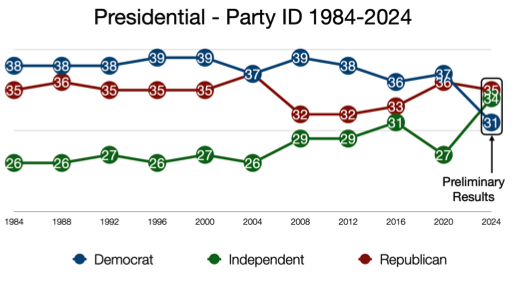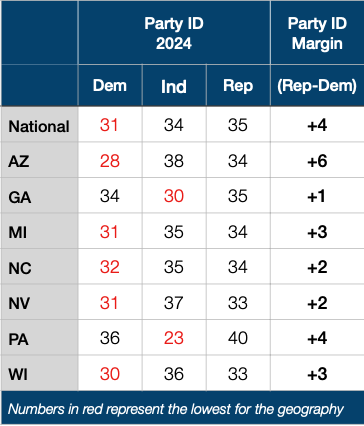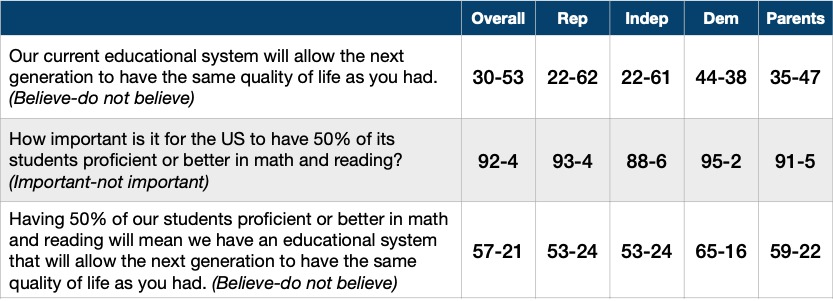One of the questions we’re asked most frequently is whether there is room for a third party. Given the result in the 2024 election, there may be a new one on the political scene.
As we highlighted in last Friday’s Discussion Points, the 2024 election produced a historic low for Democrats, continuing a decline from the 2022 midterm election that saw the lowest percentage of the electorate (33%) that they had experienced in the past twenty Congressional elections. From 2020 to 2024, Democrats dropped 6% as a percentage of the electorate, going from 37% in 2020 to 31% in 2024 (exit polls not yet finalized). This drop translates into approximately 10 million fewer voters identifying as Democrats. The Democrats’ decline gave a historic party ID advantage for Republicans of +4, as Republicans were at 35% of the electorate compared to Democrats at 31%. This election saw a sizable increase in independents from 27% in 2020 to 34% — demonstrating the rise of independents’ size and influence in US elections.
These proportions put Democrats (31%) well behind independents (34%) and Republicans (35%) as a percentage of the electorate and into third party status. Given that the percentage of Republicans declined from 36% in 2020 to 35% in 2024, this was not a shift toward Republicans — it was a move away from Democrats.
This trend extended to the state level. As shown in the chart, Republicans had party ID advantages over Democrats in all seven competitive states, while Democrats finished behind both Republicans and independents as a portion of the electorate in five of the seven competitive states (AZ, MI, NC, NV, WI).
Despite dwindling numbers in their party, the left doesn’t seem to realize that Democrats have been relegated to third party status nationally and in many of the key states. Democratic Congressman Seth Moulton is the latest target of post-election backlash from progressive activists, as he sounded off his frustration to Bloomberg: “The biggest
problem with the party is that we just have this arrogant culture where if you don’t meet every ideological litmus test established by our party’s left wing, then you’re not only wrong, you are a bad person. And that’s the perception that a lot of Americans have of the Democratic Party.”
Democrats must start trying to attract voters back into their column rather than alienating voters with ideological litmus tests. They have 10 million reasons to start changing.















